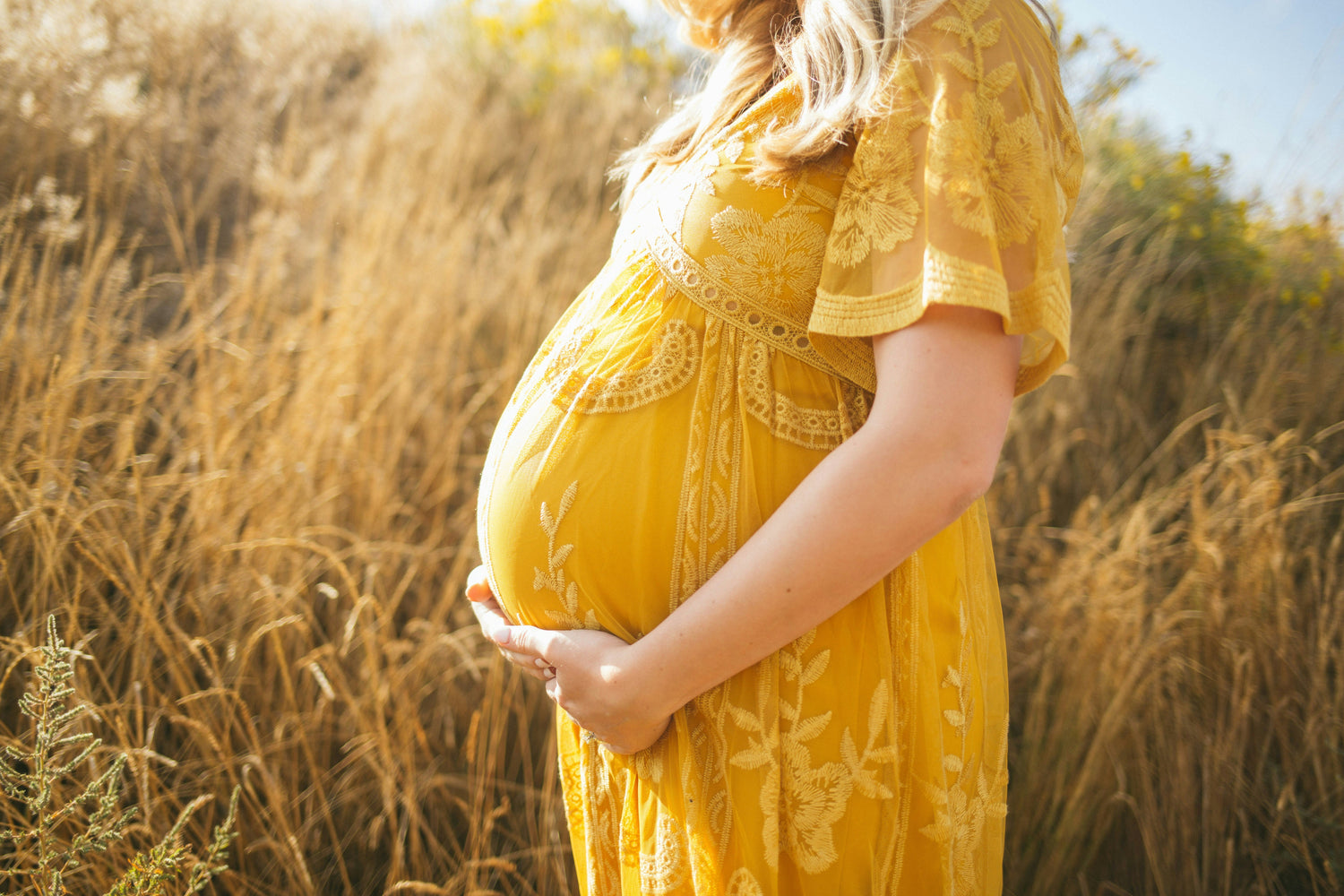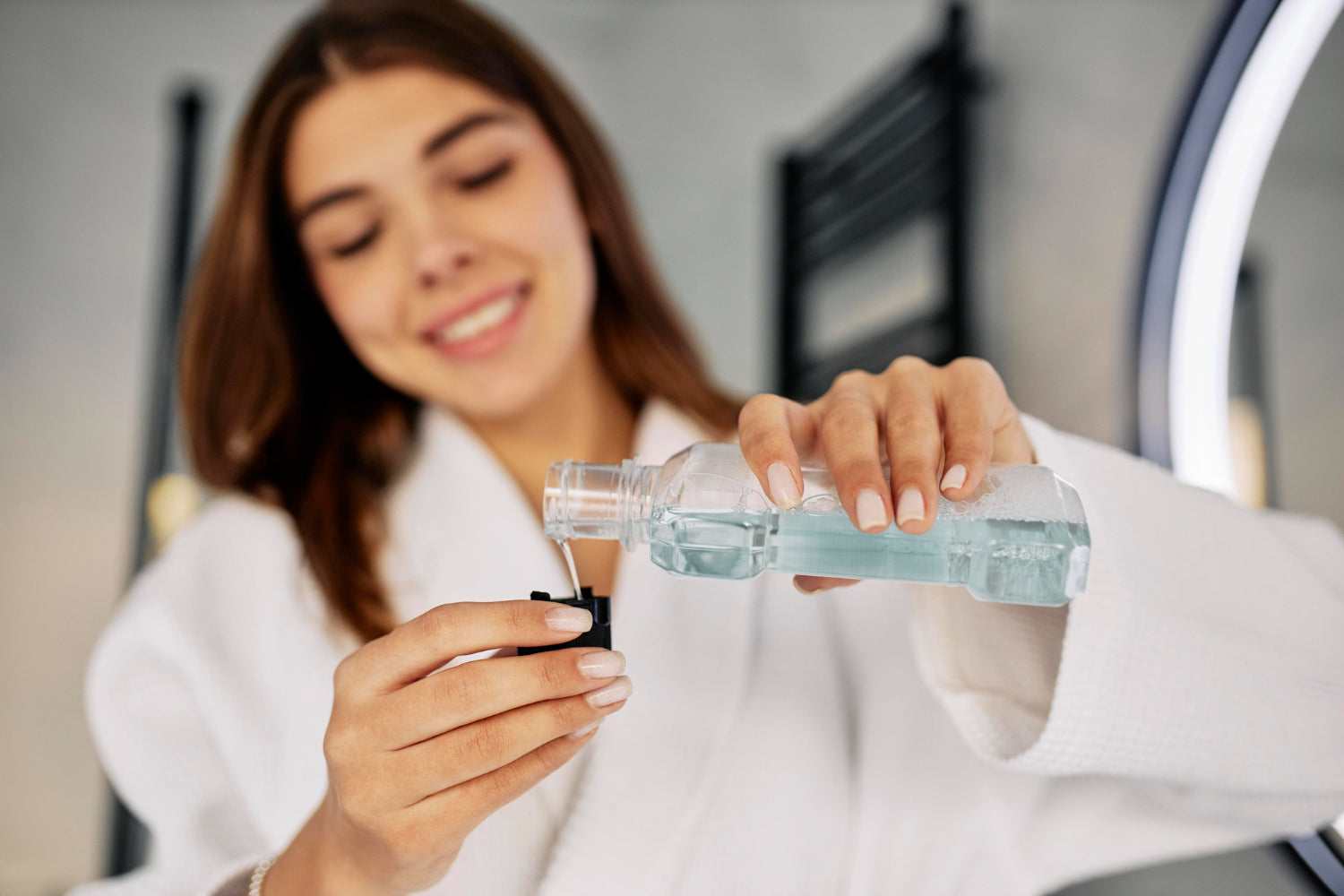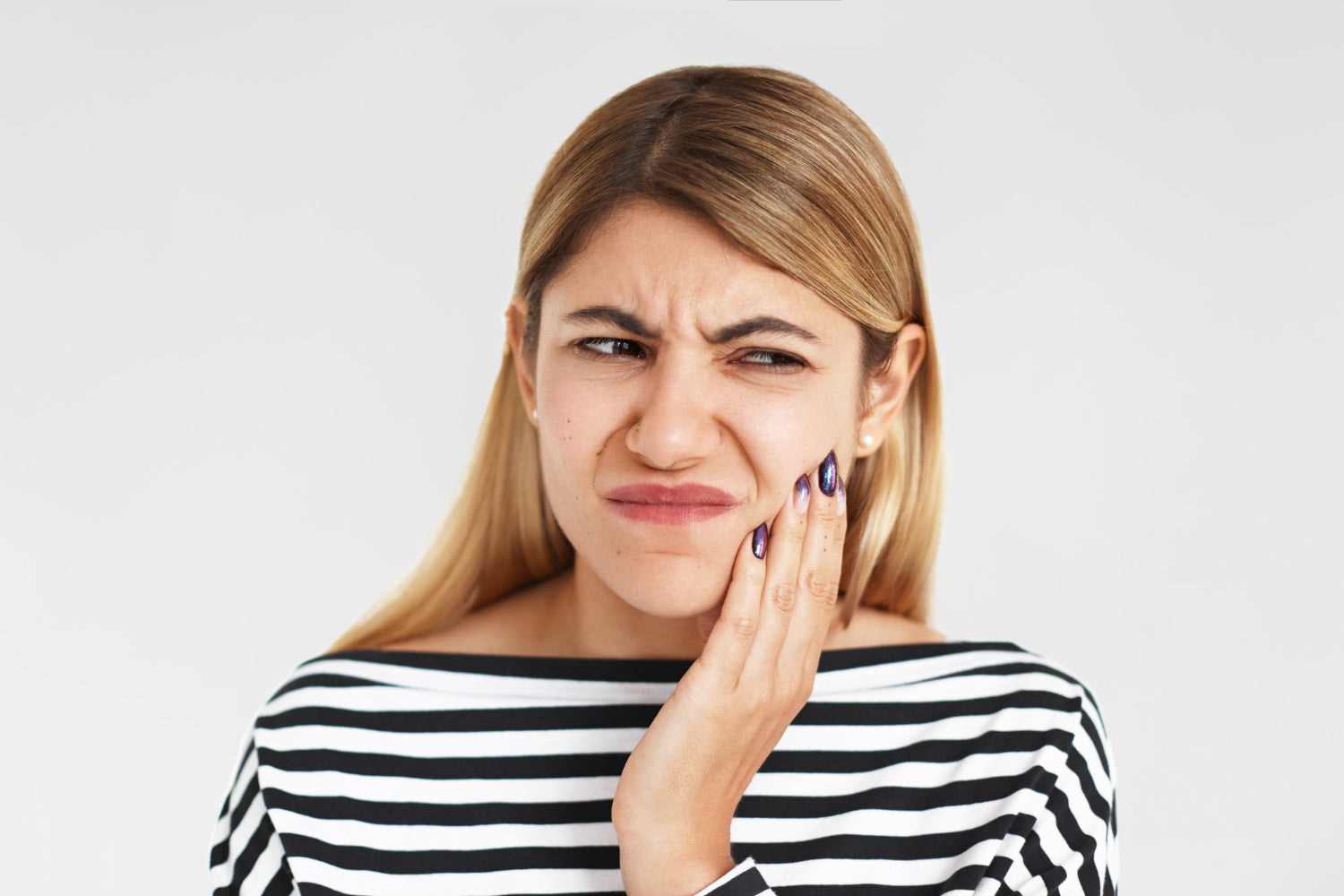Every child costs a tooth! Is this popular wisdom true or is it just a myth? There is no clear answer yet, but studies show that pregnancies have an impact on oral health. However, they do not explain the increased risk of tooth loss.
The fact is that pregnant women have an increased risk of developing dental neck caries. This is partly due to hormonal changes, which reduce saliva and thus natural protection against caries-forming bacteria. In addition, changes in eating habits, such as cravings for sweets or sour foods, can promote the development of caries.
Hormonal changes also affect the pH of the oral mucosa. Untreated gingivitis can develop into periodontitis, which can endanger the health of the unborn child. If the gums are inflamed, bacteria and toxins develop and travel through the bloodstream to the baby. Studies show that the bacteria and toxins can trigger premature birth and lead to low birth weight of the baby. Therefore, if you are planning to become pregnant, it is recommended to visit a dentist in advance so that inflamed gums can be treated.
Careful dental hygiene is always important, but it is more important than ever during pregnancy. This is the only way to reduce germs as a potential cause of inflammation. Between the 15th and 24th week of pregnancy, pregnant women can seek professional support for this. Scientific studies have concluded that in the second trimester of pregnancy, professional dental cleanings (PZR) are safe for both mother and child.
These tips will help you adapt your oral hygiene to the special circumstances of pregnancy:
Use toothbrushes with soft bristles
Because of the hormonal changes, the gums have a greater blood supply and are sometimes swollen. Hard bristles quickly lead to injuries, which are a welcome attack surface for bacteria. Here you can find soft brush heads for electric toothbrushes.
In case of nausea during pregnancy: Do not brush your teeth immediately after vomiting.
Many pregnant women suffer from nausea and vomiting in the first weeks of pregnancy. Stomach acid that enters the mouth during vomiting can cause decalcification of the tooth surface and erosion damage. It is better to only rinse the mouth with water after vomiting and wait half an hour before brushing the teeth. In the meantime, a tooth-friendly chewing gum can provide a fresh mouth feeling.
Tooth-friendly and balanced diet
Make sure you eat a balanced, tooth-healthy diet with plenty of fresh fruits and vegetables. This is not only good for your teeth, but also for your unborn child, who gets nutrients from the mother's food.
Correct timing for cravings
Cravings usually come out of nowhere. Nevertheless, try to control your consumption of sweet or sour foods. It is good for your teeth if you eat sweet or sour foods directly after the main meals. This allows the oral flora to recover in between. You'll also reduce acid attacks on tooth enamel, reducing the spread of tooth decay.
And one more tip when you hold your baby in your arms:
Children are basically born without caries pathogens. They get them through the saliva of close caregivers, such as parents, siblings or grandparents. Therefore, never clean the pacifier by putting it in your mouth and use your own spoon to taste food.




Leave a comment
All comments are moderated before being published.
This site is protected by hCaptcha and the hCaptcha Privacy Policy and Terms of Service apply.